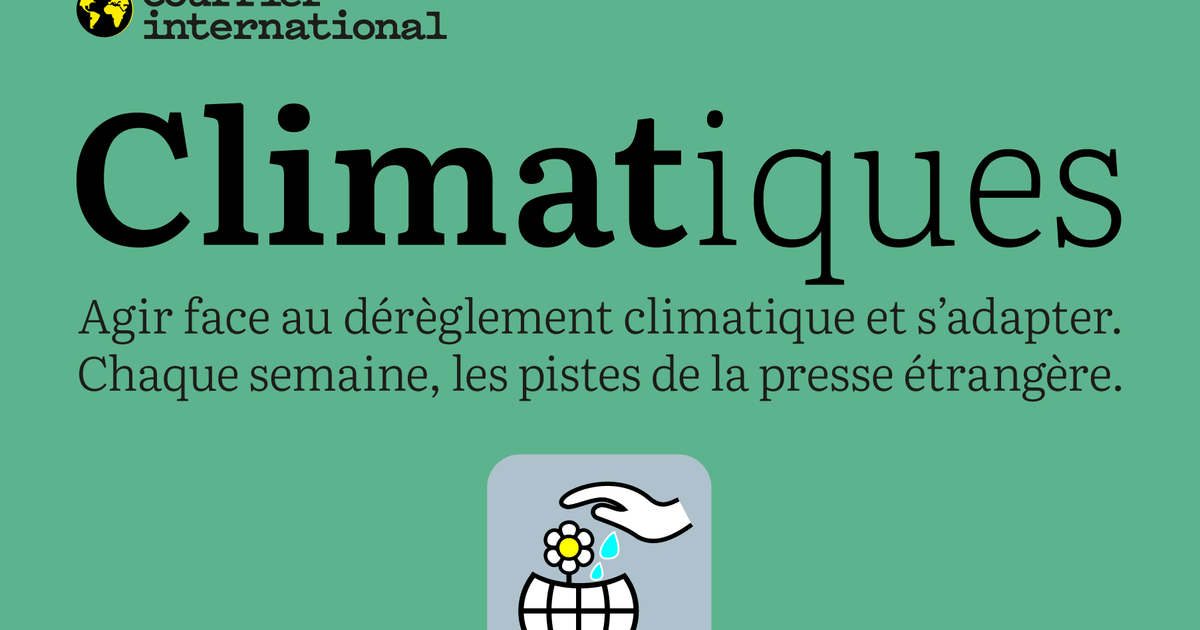Capturing fog to heal glaciers

Cooling the planet by injecting aerosols into the stratosphere that can reflect some of the sun's radiation back into space. The idea isn't new, but for the first time, a government—in this case, the British government—has just given the green light to experiments conducted "on the ground." that is, in the open air.
In the UK, controversy is raging over this project, which is being funded at great expense by a public agency. In an op-ed published by The Guardian , two climate scientists denounce it as a “dangerous distraction” and a technology that amounts to “treating cancer with aspirin.”
In stark contrast to the demiurgic pretensions of British geoengineers, in Colombia, teams from the NGO Cumbres Blancas (“White Summits”) are patiently working to restore the páramos, wet moors located just below the country's last glaciers, reports El Espectado r. The aim is to replant wherever possible—that is, above 3,000 meters above sea level—the frailejón, a plant endemic to the Andean massifs whose fleshy leaves retain moisture from clouds and fog and fix it in the soil. This ecosystem is weakened every summer by forest fires and human exploitation, and constitutes the main water resource for more than 16 million Colombians.
The initiative was launched by a journalist seven years ago who was alerted to the rapid melting of tropical glaciers—those most sensitive to global warming. Marcela Fernández doesn't believe in miracle solutions. The large white tarps stretched over the La Corona glacier in Venezuela didn't save it— it disappeared last year .
The founder of Cumbres Blancas, however, believes in the possibility of slowing down the process. “Glaciologists explain that a glacier feeds on snow. I said to myself: what happens to glaciers is that they die of hunger.” Hence the idea, in 2018, to launch the revegetation of the páramos, these abandoned wetlands. Scientists, artists, and ecologists quickly joined her to form “a community of experts and mountain lovers,” as El País writes .
Since then, the NGO has also established itself in Ecuador, Peru, Mexico, and Venezuela. And Marcela Fernández was cited in 2023 by the BBC as one of the “100 most influential women in climate action.” Yet, she has no illusions about the effects, at least in the short term, of her action. “Colombian glaciers are dying; their disappearance is inevitable. But we can still act to preserve at least a trace of them.” A lucidity and modesty to reflect on.
Climatiques is taking a break and will be back on May 15th.
Jean-Luc Majouret
Not a subscriber yet? Subscribe from €1Just Stop Oil's orange vests in the closet
No more slow-motion operations on the London ring road and no more throwing soup at artwork. On April 26, after a final hurrah in the streets of London, the environmental collective Just Stop Oil ended its three-year campaign. “Officially,” explains The Times, “Just Stop Oil claims to have achieved its objective: the Labour government’s official position is not to grant new licenses to exploit hydrocarbon deposits” in the North Sea. But this explanation doesn’t convince everyone. Find out more here.
In Europe, air travel emits more and more CO2
Greenhouse gas emissions from the European aviation sector are on track to return to their 2019 level, before the Covid-19 pandemic, according to a report by the NGO Transport & Environment. In 2024, more than 8.4 million planes will have taken off from European airports, emitting 187.6 million tonnes of CO2 , or 98% of the sector's emissions in 2019. This "testifies to the sector's struggle to decarbonize, even as its representatives lobby Brussels to try to relax European environmental standards," notes the Financial Times. These companies have collectively committed to achieving "net zero emissions" by 2050. Find out more here.
Temperatures are yo-yoing
People are going from sweating to shivering and back again more and more quickly, reports The New York Times . Sudden five-day temperature swings are becoming more frequent, and the temperature differences are becoming more pronounced. This is the conclusion of a study published in Nature Communications, which examined temperature data from 1961 to 2023 in different regions of the world. Those most affected by the phenomenon are South America, Western Europe, Africa, and South and Southeast Asia. Learn more here .
Courrier International




